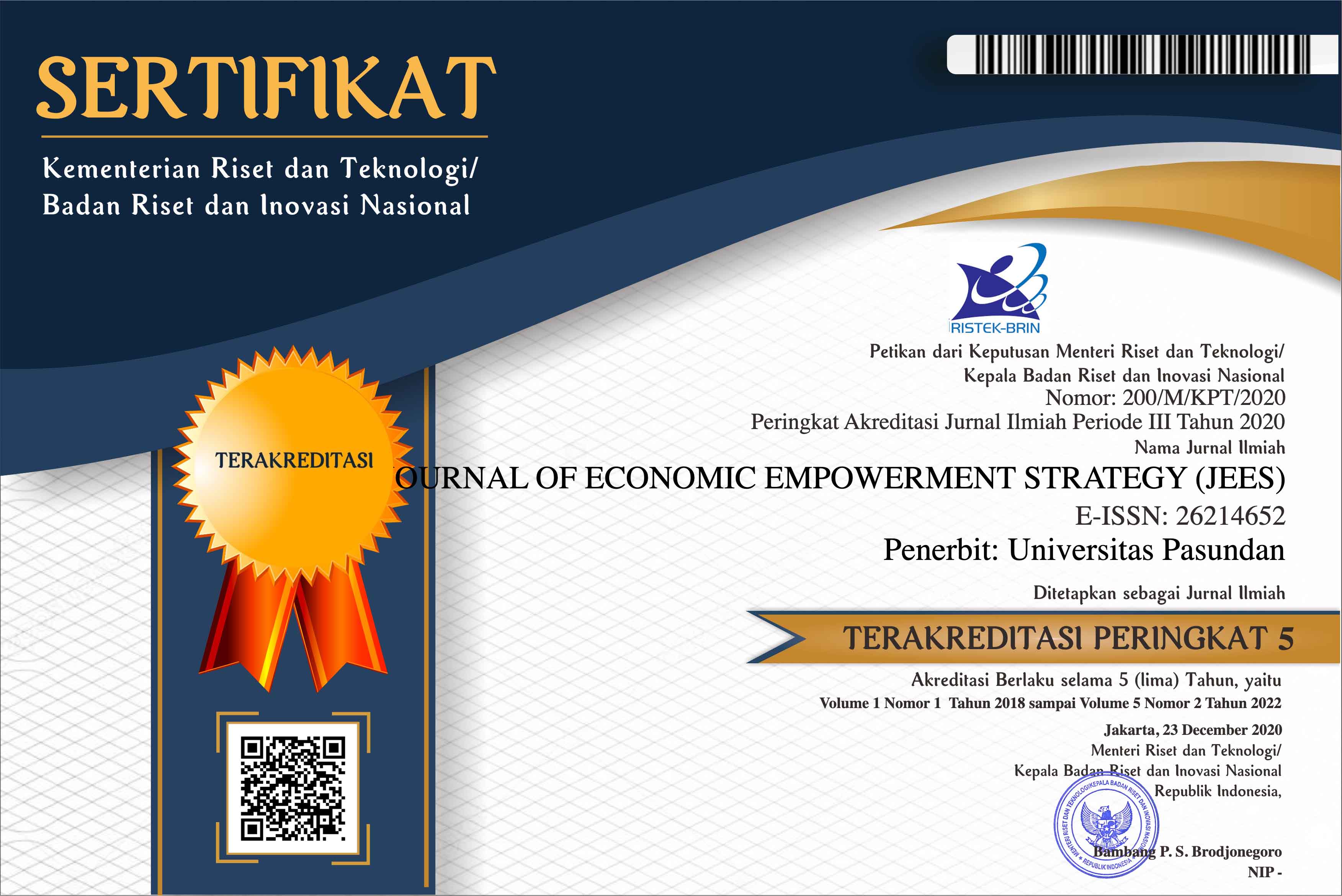THE EFFECT OF HALAL LABELS OF PACKED FOOD PRODUCTS ON PURCHASE DECISIONS AT A GENERAL STORE IN CIMINCRANG SECTOR BANDUNG
Abstract
The impact of free trade is an increase in the circulation of food and beverage products, both local and imported. The circulating food needs to provide security protection for Muslim consumers who must consume food in a halal and good manner. Halal food, in addition to food that is physically safe but also safe according to religious beliefs. The provisions of halal food will influence Muslim consumers in deciding to buy food. Manufacturers are aware of this, so producers are trying to get halal certificates from LPPOM MUI, which is a competent institution in researching, reviewing and analyzing food and cosmetic products that are not harmful to society and are halal from a religious perspective. This condition triggers producers to register halal products, because it is believed that it will increase sales which have an impact on improving the economy of business actors. 2) Analyzing consumers when making purchases on halal labels of packaged food products; 3) Knowing the effect of halal labels on packaged food products on purchasing decisions at grocery stores in Cimincrang Village, Bandung; 4) Knowing the obstacles. The research method used is descriptive quantitative, primary data is literature study, interviews, field observations to grocery stores in Cimincrang Village. Consumers who buy food products at a grocery store in Cimincrang Village. Based on the results of the study, consumers in buying food products, the presence of a halal label in the packaging has not become a major concern. This is due to the assumption that because the seller is Muslim and believes in an institution that issues a halal label, the food purchased is also halal. Business actors in grocery stores (retail) also trust producers, because most of us are Muslims, producers in producing food are also halal. Because if there is no halal label, consumers will complain. This condition causes increased awareness for business actors not to sell food and beverage products that do not have a halal label. Because the halal label is believed to increase sales and have an impact on increasing the economy for business actors. The influence of the halal label on purchasing decisions is in the low category. The findings in this study are that in general, people pay less attention to halal labels on the food packaging they buy, but focus more on product expiration. The problem is that packaged food products are not required to include a halal label issued by the MUI, and there are no firm sanctions for business actors who do not include a halal label on their food products.














